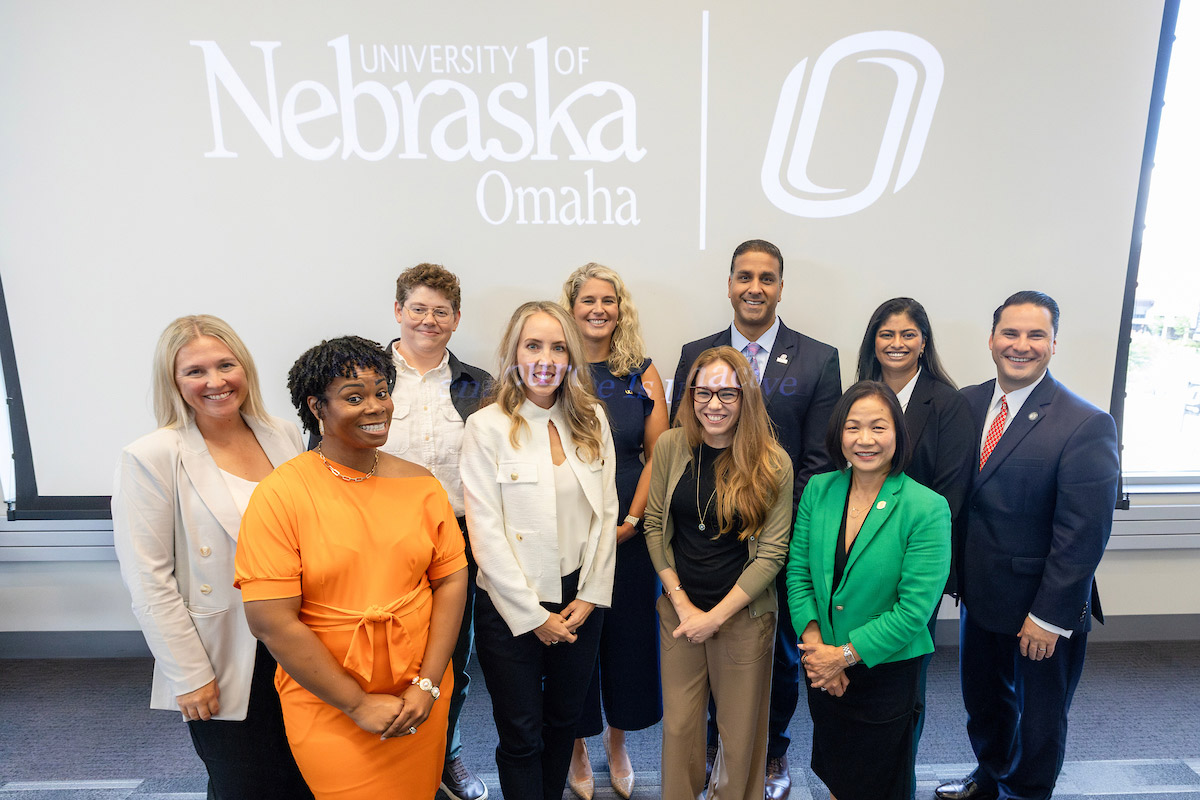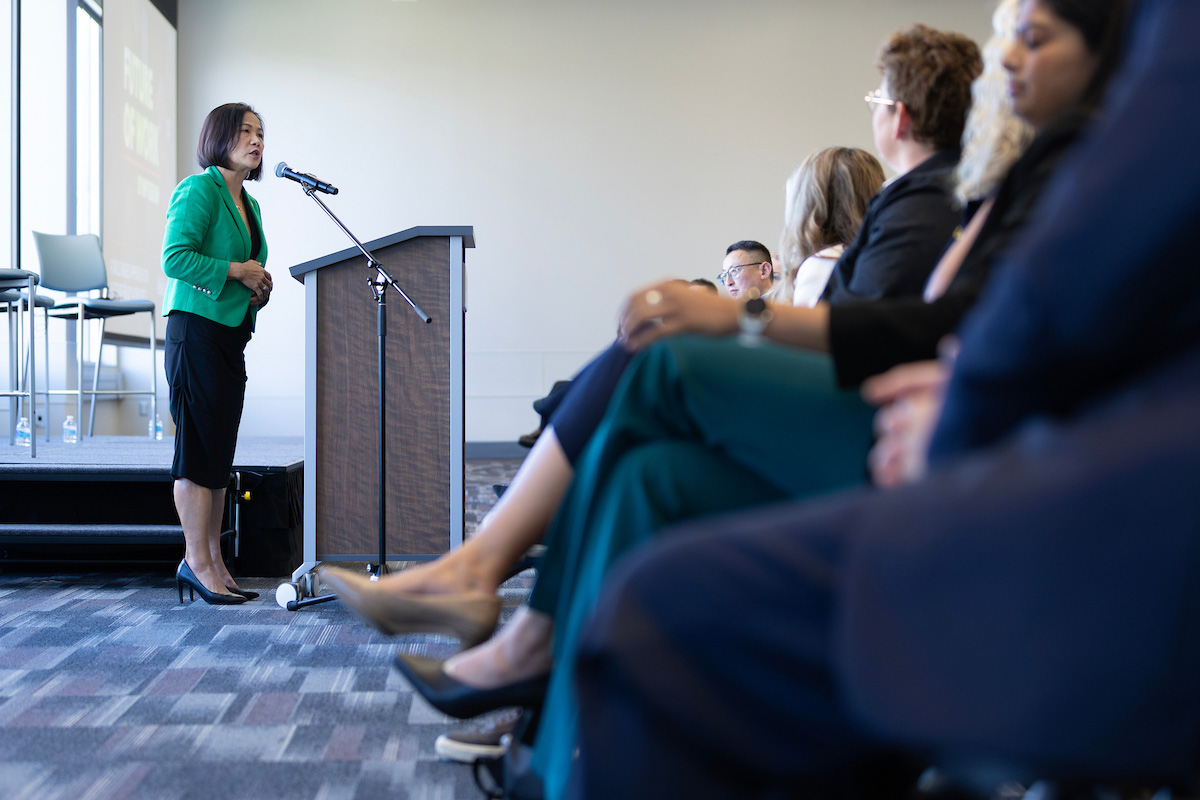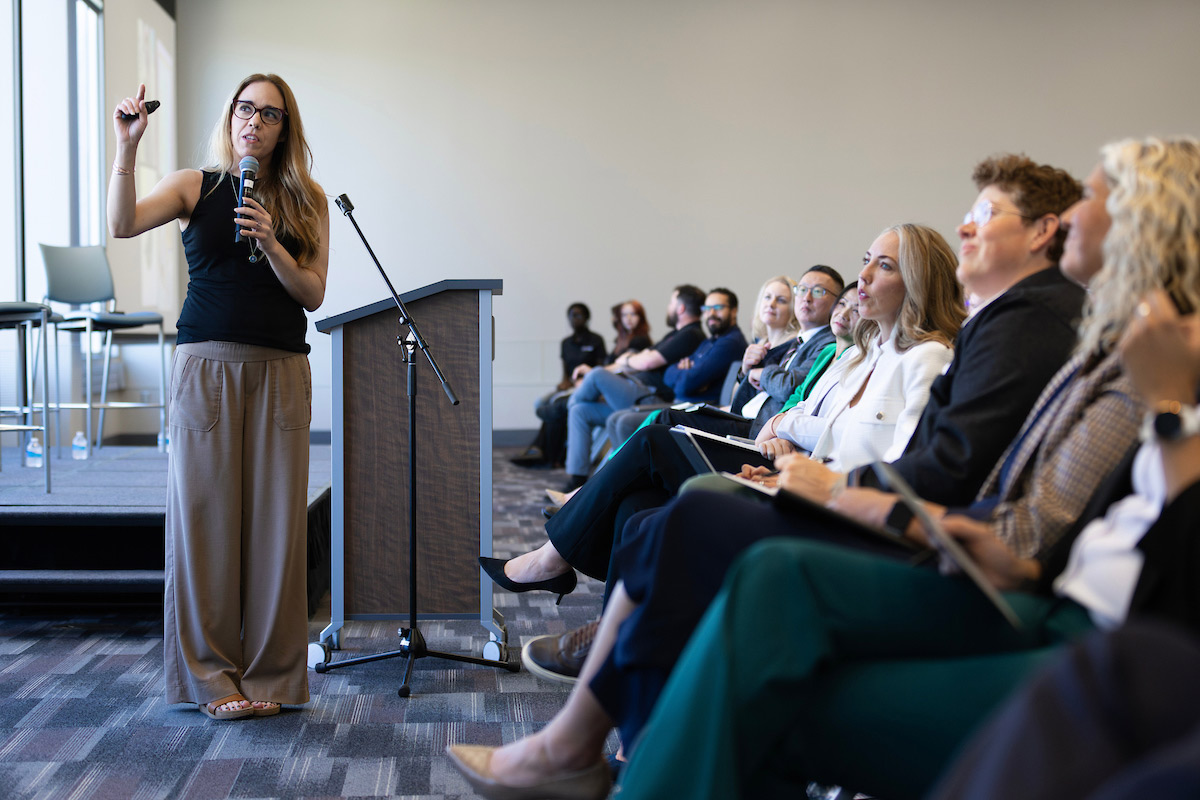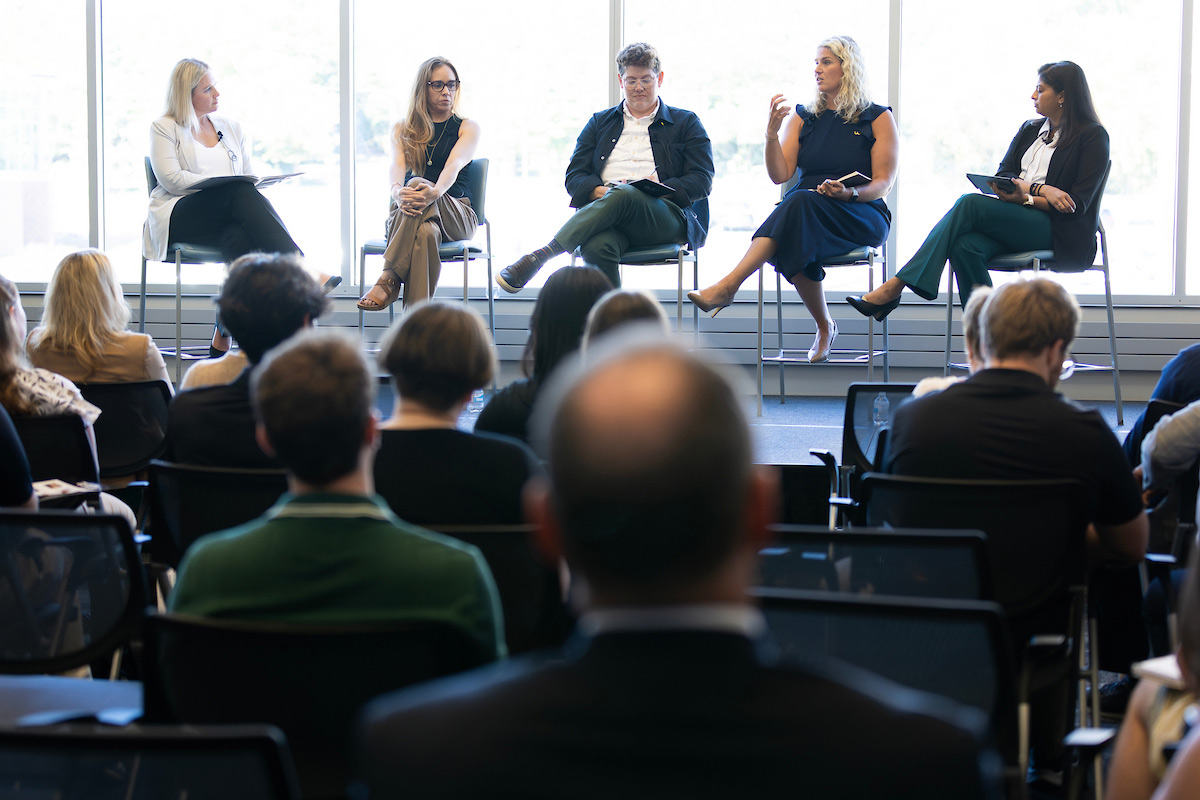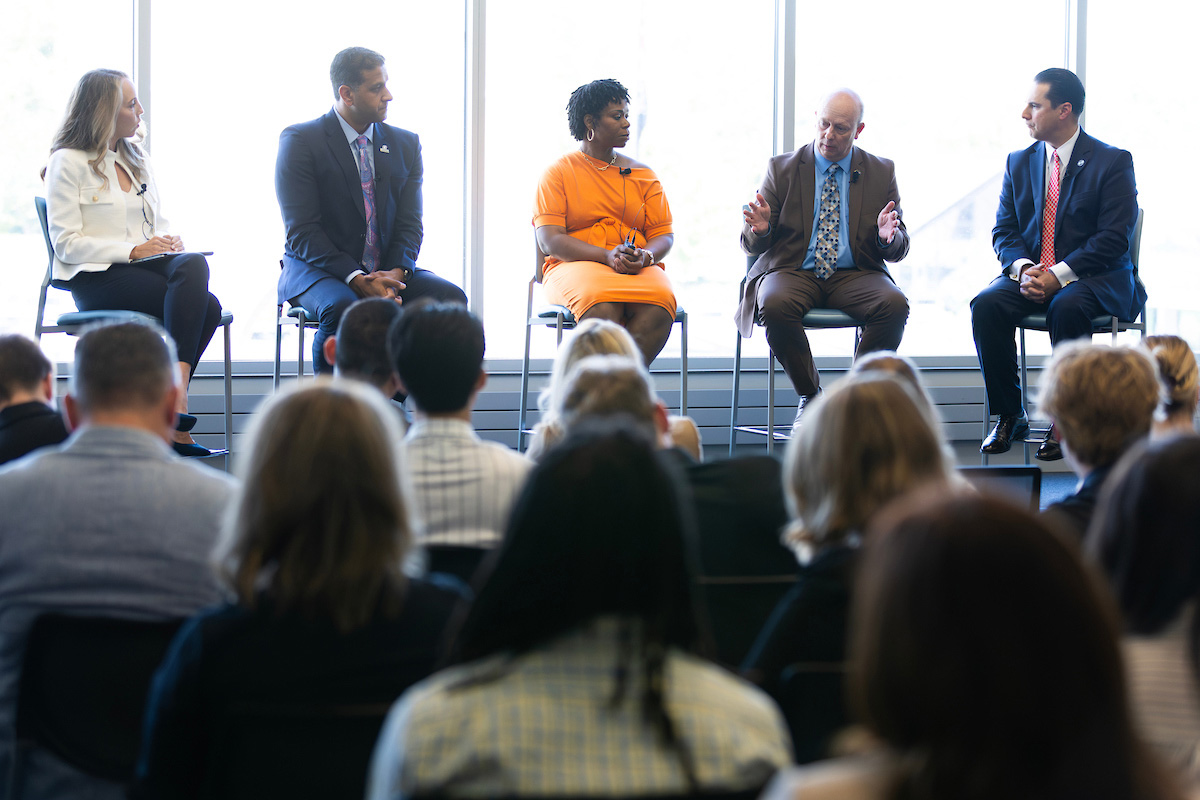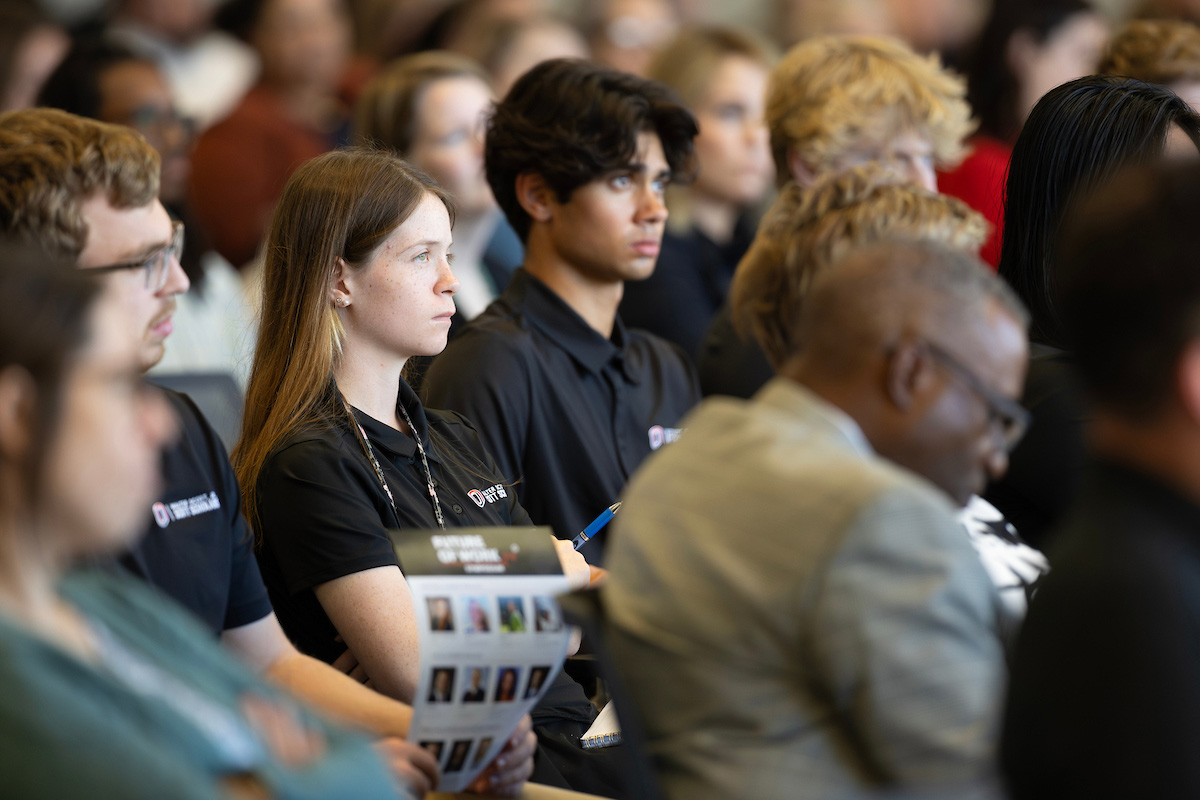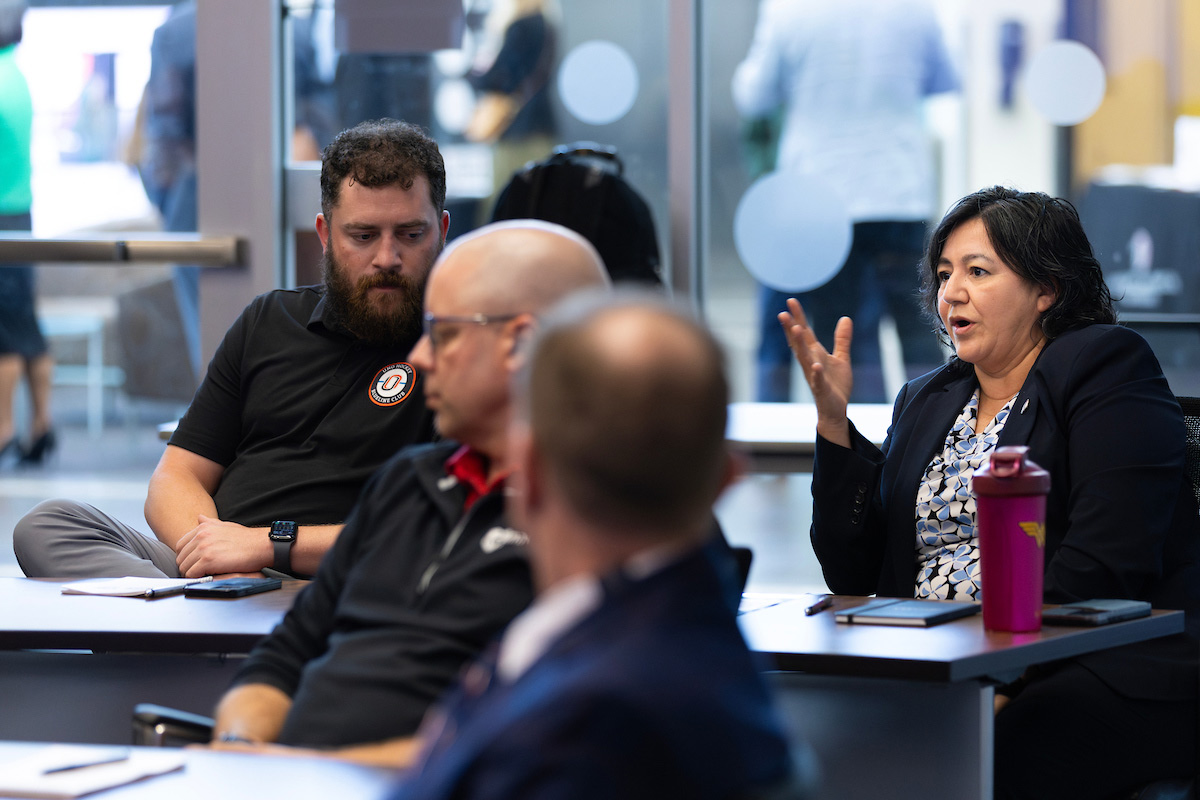For Local, National Workforce Experts, the Future of Work is Skills-Based Learning
UNO’s latest Future of Work Symposium highlights the shift to skills-based education in shaping tomorrow’s workforce.
- published: 2024/09/25
- contact: Sam Peshek - UNO Office of Strategic Marketing and Communications
- email: unonews@unomaha.edu
- search keywords:
- Future of Work
- Workforce Development
Local and national workforce experts recently gathered at the University of Nebraska at Omaha (UNO) for the latest installment of the Future of Work Symposium to discuss an evolving labor landscape where skills, rather than degrees, will determine career success.
Hosted by UNO Chancellor Joanne Li, Ph.D., CFA, and Associate Vice Chancellor for Innovative & Learning Centric Initiatives Jaci Lindburg, Ph.D., each symposium installment features experts who delve into topics related to the evolving landscape of work.
Chancellor Li underscored the importance of the event to workforce development in Omaha to the audience of employers, community partners, students, faculty, and staff.
“When we created Future of Work, this was our vision. We wanted to connect everyone to have a conversation – not prescriptive, because we don’t know it all. We just want to hear what you think,” she said.
Led by keynote speaker Dawn Karber, MPA, director of SkillsFWD, the day’s discussion centered on the theme of “a skills based approach for a future-ready workforce.”
Karber’s keynote presentation focused on “the great skills convergence” — a movement toward empowering workers and employers to articulate the value of specific, demonstrable skills the same way holders of traditional academic credentials can articulate their skills through diplomas and titles. She said that movement will take time and starts at the ground level.
“We have to start with our communities and our schools, we have to start changing the ways we are communicating with our employees, with our job-seekers, those who are going through training….We have to start thinking about how things fit differently,” Karber said.
With workforce demands changing due to technological advancements, economic shifts, and the rise of the gig economy, internships and practical experiences are becoming more crucial than ever in shaping job readiness. According to the panelists, internships not only bridge the gap between education and employment but also allow students to demonstrate real-world skills that employers are actively seeking.
Two panel discussions featured the following speakers.
Local Panel:
- K.C. Belitz, Director, Nebraska Department of Economic Development
- Harnoor S. Dhaliwal, Ph.D., Co-Executive Director University of Nebraska at Omaha and University of Nebraska Medical Center Scott Scholars Program
- Heath Mello, President & CEO, Omaha Chamber of Commerce
- CJ Jackson, PMP, PMI-PBA, Director, Organizational Development Human Capital, Omaha Public Power District
National Panel:
- Dawn Karber, MPA, SkillsFWD Director
- Kristine Collins, MA, Dean, University of California Irvine Division of Continuing Education
- Meena Naik, Ph.D., Director, Skills First Design and Lifelong Learner, Jobs for the Future
- Kate Giovacchini, MS, Digital Trust Technologies and Enterprise Technology Engineering, Arizona State University.
As the U.S. workforce undergoes a transformation, the university is playing a key role in shaping how workers are trained for this new landscape. The symposium highlighted the role of higher education in adapting to this skills-first paradigm, with universities taking on the responsibility of ensuring that graduates not only have the knowledge, but practical skills, to offer employers.
Panelists also discussed the increasing need for alternative credentials, such as microcredentials and certifications, which allow workers to demonstrate specific skills to employers without the need for a four-year degree. This flexibility is particularly important in industries where technology is rapidly advancing, and traditional degrees may not keep pace with the latest developments.
As the U.S. enters a transitional period in defining the future of work, experts at the symposium agreed: the path to career success will be determined by the ability to acquire and demonstrate high-demand skills. With organizations across the nation embracing this shift, universities like UNO are positioned to lead the way in ensuring that students and workers alike are prepared to thrive in this new skills-driven economy.
As internships and skills-based credentials rise in importance, the next generation of workers will need to adapt to new ways of proving their value in a competitive job market. For UNO, these conversations are crucial as it prepares students for a workforce where skills, not just degrees, will open doors.
